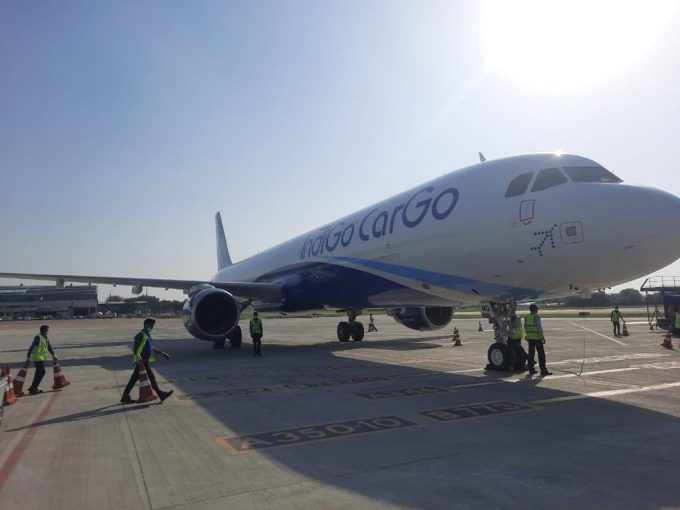PSA completes early exit from box terminal concession at India's VOC
Singapore-based PSA International wound up its container terminal operations at India’s Tuticorin Port at the ...

India’s largest private airline, IndiGo, is stepping up freighter operations, aiming to ride what it sees as strong economic tailwinds for air cargo growth.
“We are evaluating the addition of more routes for China and South-east Asia to create air cargo-friendly routes, ensuring efficient and seamless transport,” a spokesperson for the low-cost airline told The Loadstar.
IndiGo recently added a third freighter – a converted A321 – to its CarGo fleet, which had its debut with a service connecting Hyderabad (southern India) ...
Trump tariffs see hundreds of cancelled container bookings a day from Asia
'To ship or not to ship', the question for US importers amid tariff uncertainty
'Disastrous' DSV-Schenker merger would 'disrupt European haulage market'
'Chaos after chaos' coming from de minimis changes and more tariffs
Forto 'sharpens commercial priorities' as it lays off one-third of staff
List of blanked transpac sailings grows as trade war heats up and demand cools
EC approves DSV takeover of DB Schenker
Overcapacity looms for ocean trades – with more blanked sailings inevitable
Amazon Air’s metamorphosis: 'a different air cargo unit from two years ago'
Shippers in Asia restart ocean shipment bookings – but not from China
India withdraws access for Bangladesh transhipments, in 'very harmful' decision
'Tariff hell' leaves industries in limbo – 'not a great environment to plan'


Comment on this article